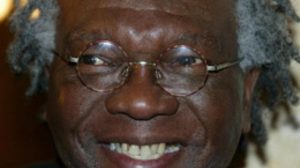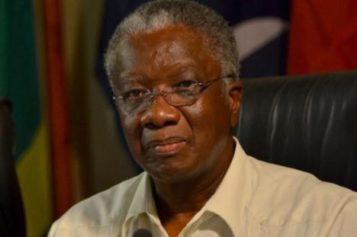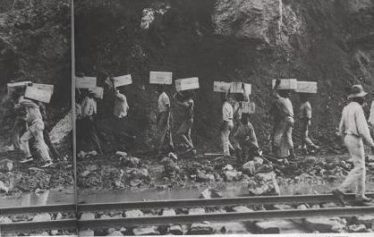
Author Austin Tom Clarke passed away Sunday, June 26. (Photo via Loop New Barbados)
Barbadian novelist Austin Tom Clarke was today eulogized as an iconic literary figure, a “social realist” and a pioneer of West Indian literature “who left some very remarkable work.”
Clarke, 81, died Sunday in Toronto, Canada, his home for several decades.
Celebrated poet and novelist George Lamming said Clarke was a “very fine writer” who, unlike many of the authors of his time who moved to the United Kingdom, chose to practice his craft in Canada.
“Clarke was the exception. He is the only one of the really prominent writers who went the other way. He went to Toronto. Nearly all of his professional life was made in Toronto and he became a great success to the extent that in some papers, he was described as a Canadian writer. I think this was one of his great virtues – his capacity to accommodate to a situation, to integrate into a situation and to make the maximum opportunity of that situation,” Lamming said.
He identified Clarke’s 2002 novel, the Giller Prize winner “The Polished Hoe,” as one of Clarke’s most mature publications, a trait he displayed as he grew older.
“It is not so much about any fundamental changes in mood or in feeling or in commitment. I do not think that those changed, but what grew and matured was the craft of writing. He learnt to write in a way that he was not writing with in his earlier works. I think ‘The Polished Hoe’ is one of his best books.”
Contending that Clarke remained one of the literary icons of West Indian literature, Lamming lamented that there was no mention of the Barbadian novelist in the conversation about the history of this renaissance period.
Like Lamming, former Lecturer in Literature and English at the Barbados Community College and current editor of Bim Magazine Esther Phillips argued that the region had lost “an iconic literary figure” who had carved a path for up-and-coming West Indian writers.
“Clarke has left a very important legacy. He has given us insight into who we are as black people, who we are as Caribbean people, and the belief to make our way in metropolitan countries like Canada where he made his home,” Phillips said.
Read more here.


